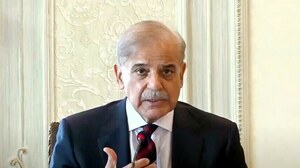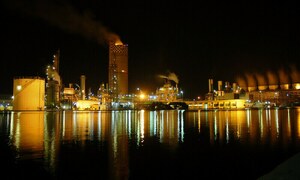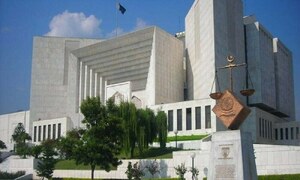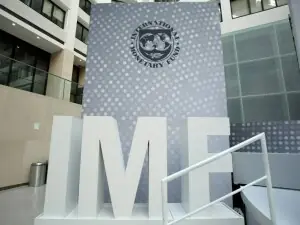Chile's central bank cut its outlook for 2010 economic growth to a range of 4.25 percent to 5.25 percent on Tuesday, and revised up its inflation forecast, citing the impact of February's massive earthquake. In its April Monetary Policy Report, the central bank forecast inflation would quicken to 3.7 percent this year, compared with a previous forecast of 2.5 percent, in the wake of the February 27 disaster, which killed hundreds and wrecked roads and infrastructure.
It said monetary policy would remain stimulative in coming quarters, adding that the inflationary impact of the 8.8-magnitude quake is not expected to last beyond the end of the second quarter. In explaining the lower outlook for economic growth, from a previous forecast of 4.5-5.5 percent this year, the central bank said in its report: "This is because the immediate effects of the earthquake and tsunamis will outweigh the increase that the reconstruction effort will bring."
Central Bank President Jose De Gregorio told lawmakers after the publication of the report that the economy would have grown close to 6 percent if not for the quake. He also predicted the bank's benchmark rate would rise higher than previously forecast by year-end.
"In this scenario, it is most likely the rate will be above 2.0-2.5 percent ... by December this year," he said. Chile's currency, the peso, was unfazed by the adjustments, which traders said the market had been expecting. It was already weaker before the revisions were published.
"We were expecting a revision to these forecasts, particularly to inflation. So they are in line with market consensus and should not have much of an impact given the market has been factoring this in," said a local fixed-income trader. The Central Bank's De Gregorio later said that foreign exchange intervention remained an option if the peso fluctuates sharply.
The economy grew a much lower-than-expected 2.7 percent in February due to the quake, data showed on Monday, when central bank minutes hinted post-disaster inflation could prompt a rate rise soon. Finance Minister Felipe Larrain said he considered the bank's new 2010 growth outlook range to be "reasonable."
He said last month he expected growth to come in below an earlier forecast of 5.0-5.5 percent. The quake has taken over the agenda of conservative President Sebastian Pinera, who took office in March after 20 years of center-left rule, and is seen as a test of his fledgling administration.
The government is set to announce within days its plans to finance reconstruction of around a third of an estimated $30 billion in economic damage. The government has said it is planning a moderate tax adjustment and plans to repatriate some money from its copper boom savings held in a sovereign wealth fund. Other alternatives being mulled include bond issuance and credit lines.
The central bank estimated the quake shaved 3 percentage points off potential growth in the first quarter year-on-year, and will erode 2 percentage points from growth the second quarter compared to a year ago. Chile's government has estimated the quake has taken 1.5 percentage points off 2010's potential growth. The central bank said it now expected to see a current account deficit of 1.1 percent of gross domestic product this year, compared to a previous outlook for a 0.6 percent surplus.
BR100
16,405
Increased By
92.5 (0.57%)
BR30
52,938
Increased By
579.1 (1.11%)
KSE100
158,781
Increased By
743.5 (0.47%)
KSE30
48,500
Increased By
249 (0.52%)





















Comments
Comments are closed.